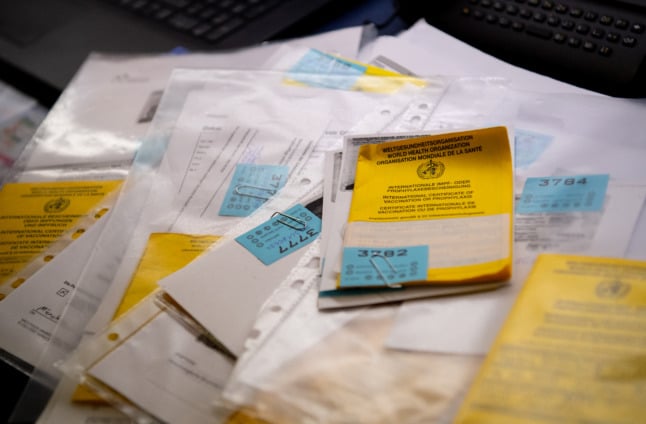“To protect public health and vulnerable groups of people from Covid-19, provision is made for persons working in certain establishments and businesses to be vaccinated or recovered or to have a medical certificate stating that there is a contraindication to vaccination against Covid-19,” a draft of the law obtained by Reuters states.
The change will means that anyone who works as a doctor, nurse, paramedic or carer will have until March 15th, 2022 to provide their employer with proof that they have been fully vaccinated or have recovered from Covid.
If they can’t get vaccinated for medical reasons, they will have until this date to secure an official doctor’s note explaining that why they can’t get their Covid jabs.
Anyone starting a new job after March 16th must have proof of vaccination before they start work, the draft law states. This rule will also apply to staff in doctors’ surgeries and people who work in emergency services, and people who don’t comply with the mandate could lose their jobs.
The move by the incoming SPD, Green and FDP coalition is the first step towards a more assertive stance from the government on Covid vaccination.
With more than 30 percent of the population still unvaccinated, the government is considering following in the footsteps of neighbouring Austria and introducing a general vaccinate mandate for over-12s next year.
The plan is expected to be put to a vote in parliament this month after Germany’s new government takes the reins on December 8th. According to incoming Chancellor Olaf Scholz, MPs won’t whipped along party lines but will be able to vote with their conscience on the issue.
Angela Merkel has recently spoken out in favour of compulsory jabs.
The move is part of a raft of new measures aimed at taming the fourth wave, including barring unvaccinated people from non-essential shops and other public spaces and allowing states to close restaurants and bars when incidences are high.
READ ALSO:
- Merkel airs support for compulsory Covid jabs ahead of vote
- Could German states order bar and restaurant closures under new Covid laws?
In an attempt to speed up the vaccination drive in the run up to Christmas, the government has also drafted a new law to allow pharmacists, veterinarians and dentists to vaccinate people over the age of 12.
These professionals are expected to undergo special training first, and will either have to prove that they have an appropriate space to carry out vaccinations or work as part of a mobile vaccination team.
According to DPA, these professionals will only gain permission to carry out the jabs for a limited period of time while Germany attempts to ramp up it vaccine coverage and roll out booster jabs.



 Please whitelist us to continue reading.
Please whitelist us to continue reading.
Member comments